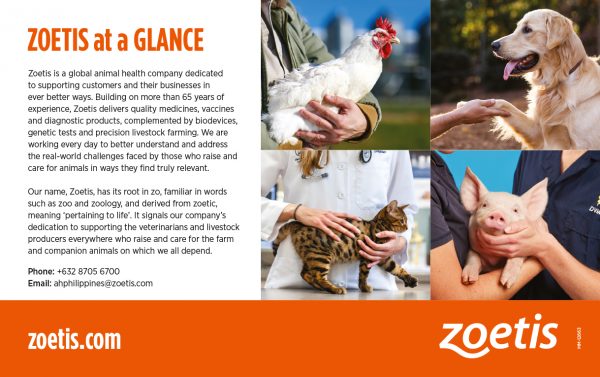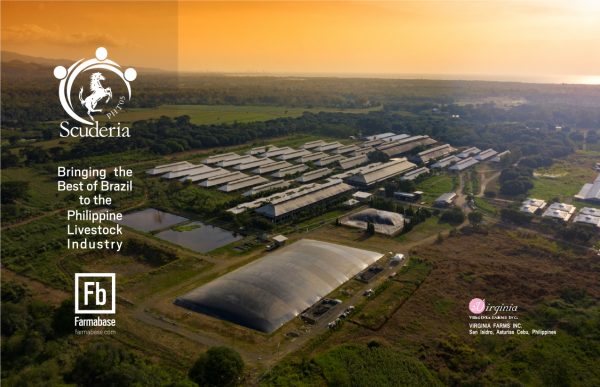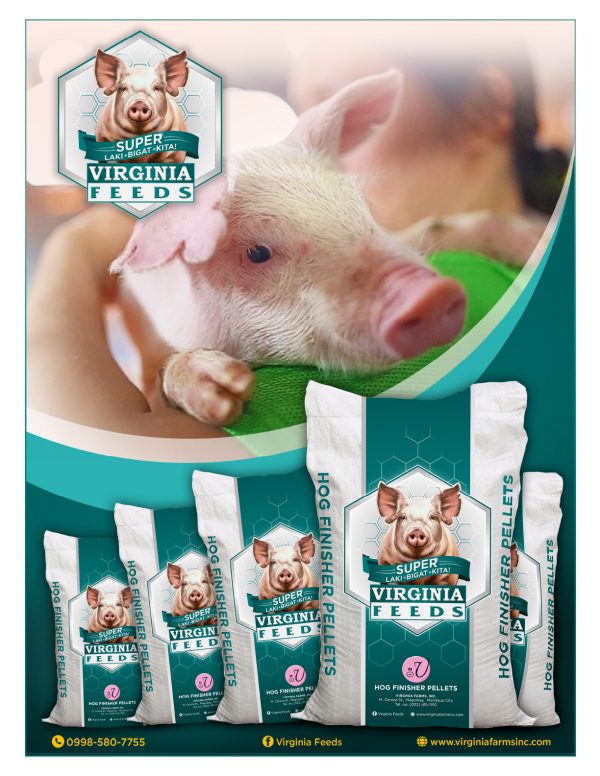Sometimes, with a little luck, the simplest ideas become so much more than their original concept. In 1968, Doña Virginia Sy Chiongbian wanted to supply the family’s shipping business, William Lines, with fresh food, so she began a poultry farm and piggery.
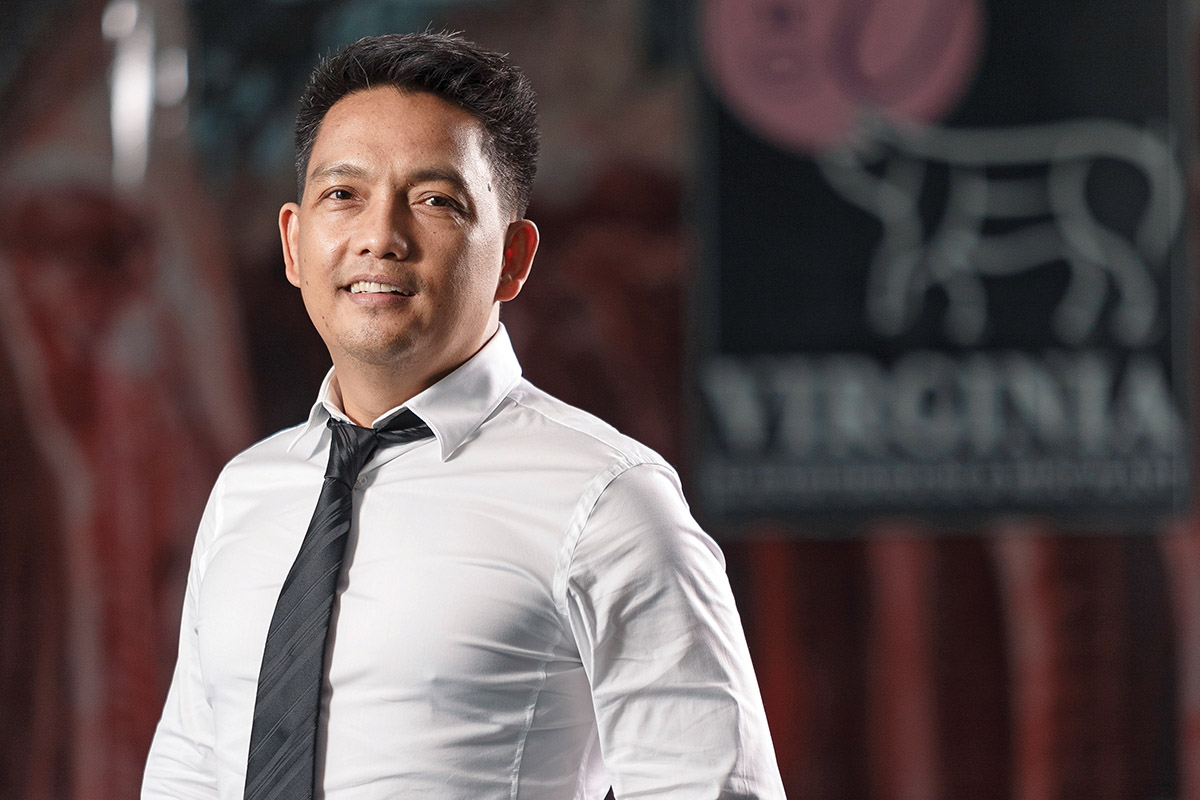
The food supply concept – and the farm – worked well, and the farm business grew so much that it is now one of the largest farm-to-table pork businesses in Central Visayas. In just 50 years, a backyard venture has become one of the Philippines’ best-known and most-loved pork brands.
The company diversified into meat processing, building a well-known brand, Virginia Food, which was eventually sold in 2002 to Avalon Holdings, as Virginia Farms focused more closely on the pig farming business on its current 360-hectare property in Asturias, Cebu.
It has invested in facilities such as a meat cutting plant in Maguikay, Mandaue City, in 2016, and the Virginia Slaughterhouse and Meat Plant, which was established in 2019. The company also has its own retail pork products brand – The Pork Shop – through which the farm’s produce is sold.
Another great success story since its inception in 2008, The Pork Shop sells fresh chilled and frozen meat and other produce through its 47 branches in Cebu’s major cities and municipalities including Lapu-Lapu City, Talisay City, Mandaue City, Danao City, Minglanilla, Consolacion and Liloan. Outside of Cebu, there are also three branches in Iloilo City and one in Naval, Biliran.
President of Virginia Farms Rolando Tambago blames the pandemic for a brief lapse in the rapid growth of The Pork Shop. “Last year, we wanted to have an additional 16 shops to maintain our momentum, because for the past three years we have averaged 33% growth year on year,” he says.
“But due to the pandemic, we only managed to open seven shops. What limits us is government restrictions on people moving from place to place, so we only managed seven out of 16 targets for 2020.”
To add to its portfolio, Virginia Farmers Solutions was created in 2017 in partnership with independent pig farmers for supplying additional pigs to maintain supplies to the expanding The Pork Shop chain.
“We have other divisions, such as the animal feed division,” Rolando says. “Even with the pandemic, we managed to expand and cover all the province of Cebu. We are new in the feed industry, but we are gaining momentum, so that’s a good start with the situation right now.”
Combating COVID-19
When COVID-19 hit the Philippines, Rolando’s initial response was focused primarily on the safety of the company’s employees. Virginia Farms was lucky in that it already had an in-house medical team of two doctors and three nurses in place before the pandemic.
“We immediately formulated health and safety protocols and implemented a massive information drive to all staff,” Rolando recalls. “Working from home was part of the protocol, and all our staff were provided with proper PPE. Some were asked to report to work alternately if needed in the operations. We paid advance salaries and bonuses, and provided free supplements to improve the immune system, as well as free groceries for a month and free transportation for a while.”
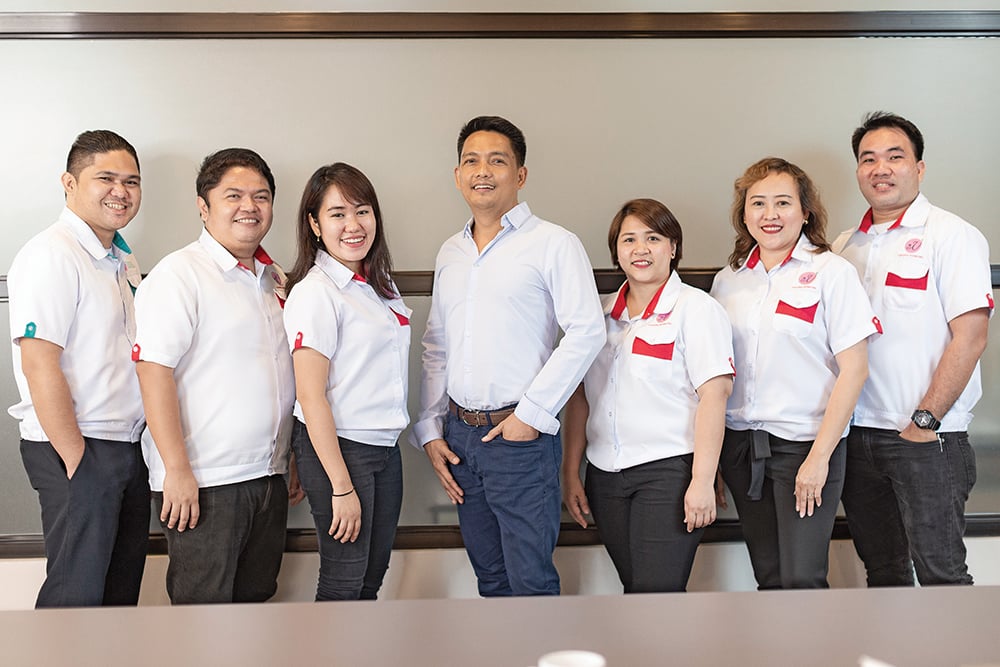
The impact on the company was still substantial, with sales revenues for the first three to five months down by 35%, largely because of the closures of institutional buyers like hotels and restaurants.
To address this sales loss, Rolando’s team intensified marketing efforts to household consumers with customised products and free delivery. The company is now at about 85% of pre-COVID revenue.
Upskilling is a standard practice
Rolando is a disciple of building skill sets in the company’s employees through ongoing training for everyone. That comes, he says, from his own good fortune in receiving sound advice and mentoring from managers in his early career.
Rolando’s career over the past 23 years has centred around the food and agricultural industry, beginning as a quality control specialist in a food manufacturing company.
He was soon promoted to Technical Assistant to the Senior Vice President for Manufacturing and, following his success in that role, he held several management-level positions until his promotion to President of Virginia Farms in January 2014.
Virginia Farms runs comprehensive training programs for all its employees, wherever they are in the company. The dividends from this program are numerous, according to Rolando.
“It has been our standard for all our employees to undergo a minimum of 40 hours in skills training per year, and that is already budgeted,” he explains.
“But aside from that, we have instituted the Total Employees Engagement Program, which ensures higher work efficiency and builds a cohesive team. All these programs – the training, skills and the activities to build a cohesive team – ensure that they can deliver higher efficiency in every role.”
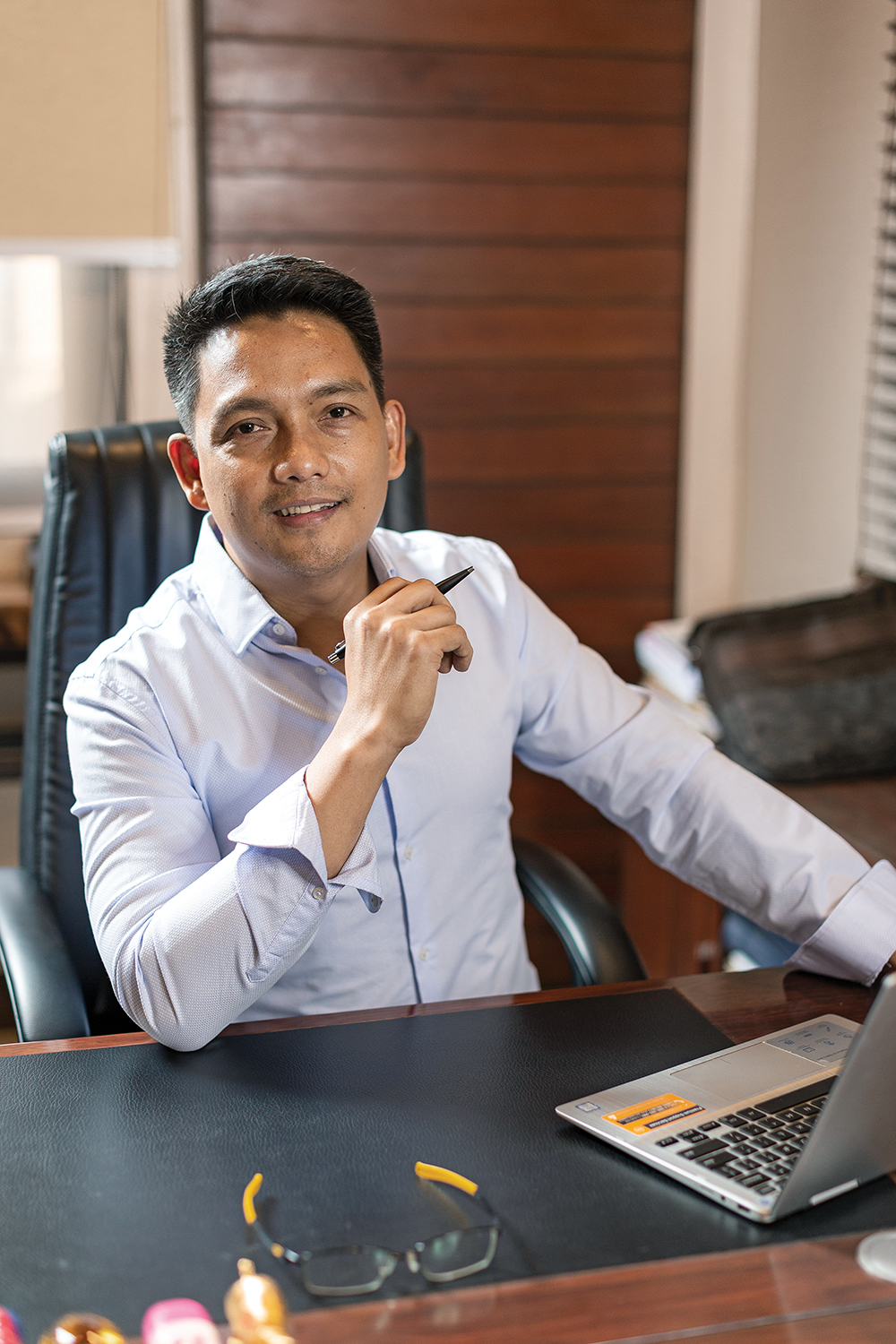
He also points out that Virginia Farms has a culture of compassion, which revolves around Rolando’s career over the past 23 years has centred around the food and agricultural industry, beginning as a quality control specialist in a food manufacturing company.
He was soon promoted to Technical Assistant to the Senior Vice President for Manufacturing and, following his success in that role, he held several management-level positions until his promotion to President of Virginia Farms in January 2014.
Virginia Farms runs comprehensive training programs for all its employees, wherever they are in the company. The dividends from this program are numerous, according to Rolando. “It has been our standard for all our employees to undergo a minimum of 40 hours in skills training per year, and that is already budgeted,” he explains.
“But aside from that, we have instituted the Total Employees Engagement Program, which ensures higher work efficiency and builds a cohesive team. All these programs – the training, skills and the activities to build a cohesive team – ensure that they can deliver higher efficiency in every role.”
He also points out that Virginia Farms has a culture of compassion, which revolves around working as a team and helping each other. Internally, it’s important that the company’s employees uphold and exhibit those values when dealing with both suppliers and customers. “Virginia Farms’ brand depends largely on our people,” Rolando says.
“That’s why culture is very important. And that’s why we put a premium on training our staff to ensure maximum customer engagement, both internally and externally. Actually, we have a special team assigned to continuously train and guide our ‘frontliners’ the whole year round to make sure we maintain and uphold the values of the brand of Virginia Farms.”
Our business is anchored on the promise of inclusive growth, not only for our business, but also for our employees and the communities in which we operate.
That is a constant thread through any conversation with Rolando, as he envisages a future at Virginia Farms without him. He takes some pride in his role as a mentor to those following him, and finds genuine satisfaction in passing on his experience.
After some consideration, he suggests his greatest strength is his commitment to developing people into leaders.
“As a leader, I was developed by my mentor, so that’s why I can see that my greatest strength is my commitment to develop people. I love to mentor and improve the lives of the people I work with, while achieving the objectives of the company. As long as it supports the objectives of the company, I am always there and committed to help our people.
“But of course, I also have weaknesses, which my employees sometimes tell me about – that I tend to overwork and lose focus on other things.”
There’s no substitute for being directly involved and gaining experience, according to Rolando. His is a mindset of getting on with the job at hand and taking affirmative action. “Somebody once told me, ‘You don’t learn to swim by reading a book,’” he recalls.
“When you are in a situation, you have to swim on your own or else you’ll drown. So when difficult situations call for action, you really have to take a calculated risk and make a decision.” Rolando’s secret to success is simple enough, he says: he really enjoys what he does.
“I know every time I achieve a certain level of success, a lot of people gain from it. So if I improve the growth and bottom line of the company, a lot of people will benefit. It always makes me happy knowing I am a part of putting clean food on people’s tables while helping farmers in the countryside earn a living,” he smiles.
“Our business is anchored on the promise of inclusive growth, not only for our business, but also for our employees and the communities in which we operate. That’s why I’m so passionate about the industry, because I know I am helping to put food on every table.”
Proudly supported by:
